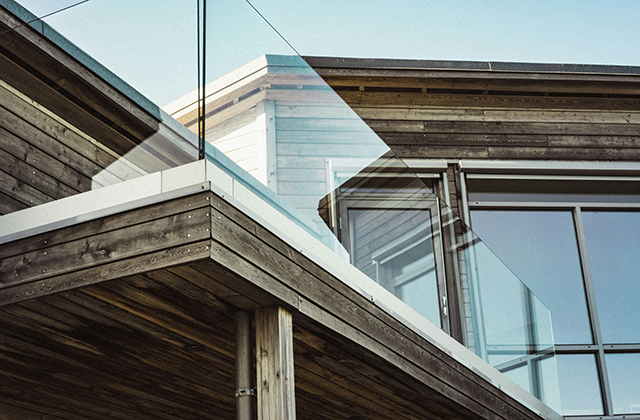
When selecting or evaluating windows for your home, one of the most crucial factors to consider is glass thickness. Many homeowners focus on aesthetics, frame materials, and energy ratings, but the thickness of your glass plays a significant role in insulation, security, and noise reduction. Whether you’re replacing old windows, upgrading for efficiency, or considering specialty glass like narrow reeded glass, understanding how glass thickness impacts performance can help you make informed decisions.
In this guide, we’ll explore why glass thickness matters, how to assess your existing windows, and what options are best suited for different needs.
How Glass Thickness Affects Performance
Glass thickness influences several aspects of window performance, including:
1. Energy Efficiency and Insulation
Thicker glass provides better insulation, helping to maintain indoor temperatures and reduce energy costs. Double-glazed and triple-glazed windows use multiple layers of glass with air or gas-filled spaces in between to enhance thermal efficiency.
For example:
- 3mm to 4mm glass: Common in older single-pane windows but lacks proper insulation.
- 5mm to 6mm glass: Standard for modern windows, offering moderate insulation.
- Double-glazed (10mm to 24mm total thickness): Provides excellent energy efficiency by trapping heat in winter and keeping interiors cool in summer.
If you’re upgrading to energy-efficient windows, consider glass thickness along with coatings like low-E (low-emissivity) glass for maximum insulation.
2. Noise Reduction and Soundproofing
For homeowners living near busy roads, airports, or urban areas, reducing noise pollution is a priority. The thicker the glass, the better it can block sound waves.
- Single-pane 3mm to 4mm glass: Offers minimal noise reduction.
- 6mm glass: Provides moderate noise control.
- Acoustic laminated glass (10mm to 12mm thick): Excellent for soundproofing, often found in commercial buildings and luxury homes.
If aesthetics are a concern, you can also opt for decorative acoustic glass, such as reeded glass, which provides both privacy and sound reduction.
3. Security and Safety
Thicker glass is harder to break, making it an essential factor in home security. If security is a top concern, you should consider:
- Tempered glass (4mm to 6mm thick): Stronger than standard glass and shatters into small, less harmful pieces.
- Laminated glass (6.4mm to 12mm thick): Made with an interlayer that holds glass together upon impact, preventing break-ins.
- Toughened safety glass (up to 12mm thick): Common in commercial settings and high-security areas.
For homeowners who want an elegant yet secure option, reeded glass can be an excellent choice for doors and partitions, offering both visual appeal and durability.
How to Assess the Thickness of Your Windows
Determining the thickness of your existing window glass can help you decide whether an upgrade is necessary. Here are a few methods to measure your glass:
1. Use a Caliper
A digital or manual caliper can measure the thickness of an exposed glass edge accurately. Simply place the caliper around the edge and record the measurement.
2. Use a Glass Thickness Gauge
A glass thickness gauge is a specialized tool that allows you to measure window thickness without removing it. This is especially useful for multi-pane windows.
3. The Coin Reflection Test (DIY Method)
If you don’t have measuring tools, you can estimate the thickness using a simple reflection method:
- Hold a coin flat against the glass.
- Observe the reflection of the coin in the glass.
- Measure the gap between the actual coin and its reflection.
This technique can provide an approximate thickness measurement, though professional tools yield more accurate results.
Choosing the Right Glass Thickness for Your Home
Selecting the right glass thickness depends on your priorities, whether it’s energy efficiency, security, noise reduction, or aesthetics.
For Standard Residential Windows
- 4mm to 6mm single-pane glass: Suitable for mild climates but offers limited insulation.
- Double-glazed (10mm to 24mm total thickness): Ideal for most homes, providing a balance of energy efficiency and noise reduction.
For Noise Reduction
- Acoustic laminated glass (10mm to 12mm thick): Perfect for homes near noisy streets.
- Triple-glazed windows (20mm to 40mm total thickness): Best for soundproofing and extreme weather conditions.
For Enhanced Security
- Laminated glass (6.4mm to 12mm thick): Offers superior break-in resistance.
- Tempered glass (5mm to 12mm thick): Shatter-resistant and commonly used for safety applications.
For Decorative and Privacy Windows
- Reeded glass (various thicknesses): Ideal for homeowners who want a blend of style, privacy, and durability. It’s often used in interior partitions, cabinet doors, and bathroom windows.
Upgrading Your Windows: When and Why?
If your windows are old, inefficient, or no longer meet your needs, it may be time for an upgrade. Here are some signs that indicate it’s time to replace your windows:
1. Higher Energy Bills
If your home struggles to retain heat in winter or stays too hot in summer, thin or outdated glass may be the culprit.
2. Excessive Noise Pollution
If street noise is constantly disrupting your home environment, consider switching to thicker, noise-reducing glass.
3. Condensation Between Panes
For double-glazed windows, condensation between the glass layers indicates a broken seal, reducing insulation performance.
4. Security Concerns
If your windows are easy to break, upgrading to laminated or tempered glass can improve safety.
Conclusion
Glass thickness is a critical factor in determining the performance, security, and efficiency of your home’s windows. Whether you’re assessing existing glass or planning an upgrade, understanding the impact of thickness can help you make informed decisions.
For homeowners looking for both functionality and aesthetics, decorative options like reeded glass provide privacy while enhancing interior design. If you’re unsure which glass thickness is right for your needs, consult a professional to ensure you get the best results for your home.
